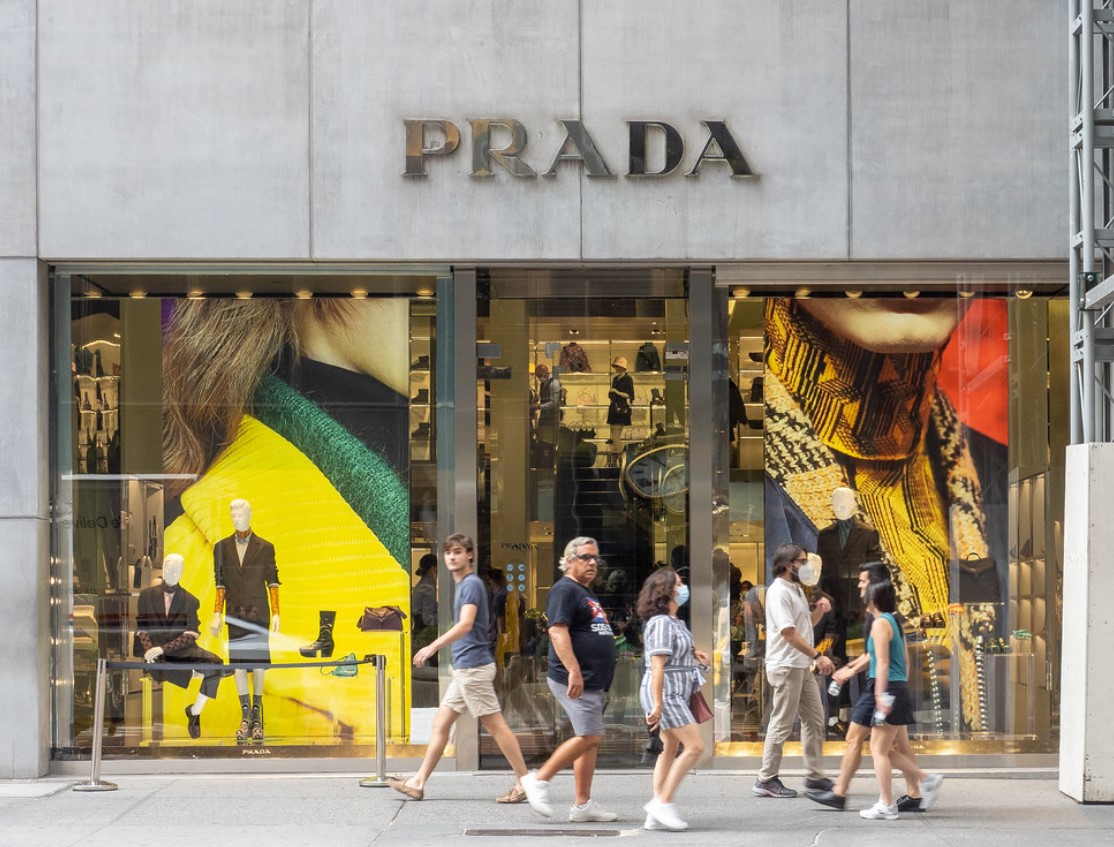Prada Group, the Italian luxury fashion house, has announced that it has joined the Fashion Task Force of the Sustainable Markets Initiative, a global platform launched by King Charles III of the United Kingdom in 2020, when he was Prince of Wales. The Fashion Task Force is a coalition of leading fashion brands, retailers, and organizations, that aims to develop and implement innovative solutions to make the fashion industry more sustainable and circular. Prada Group will share its expertise and experience in the field of traceability, and will collaborate with other members of the task force to achieve common goals and standards in sustainability. In this article, we will explore the background and objectives of the Fashion Task Force, and the role and contribution of Prada Group.
The Fashion Task Force: A Vision and a Mission
The Fashion Task Force is part of the Sustainable Markets Initiative, a global platform that brings together public and private sector leaders, as well as civil society and academia, to accelerate the transition to a more sustainable and inclusive economy. The initiative was founded by King Charles III in 2020, when he was Prince of Wales, and is supported by the World Economic Forum, the International Chamber of Commerce, and the Bank of America.

The Fashion Task Force, which is chaired by Federico Marchetti, the former CEO of Yoox Net-a-Porter Group, is one of the several task forces that focus on different sectors and themes, such as energy, transport, tourism, and agriculture. The Fashion Task Force, which was established in 2021, is dedicated to spearheading action-oriented initiatives aimed at accelerating the transition towards a more sustainable future for fashion.
The Fashion Task Force has three main objectives:
- To create a common framework and roadmap for the fashion industry to achieve net-zero emissions by 2050, in line with the Paris Agreement and the United Nations Sustainable Development Goals.
- To develop and deploy a digital passport system for clothing, which will provide consumers with transparent and reliable information on the environmental and social impact of their garments, and will enable brands and retailers to track and improve their sustainability performance.
- To support and scale up regenerative agriculture projects, which will restore and enhance the natural ecosystems and biodiversity that are essential for the production of raw materials, such as cotton, wool, and silk.
The Fashion Task Force has already launched some concrete projects and initiatives, such as:
- The Digital Passport initiative, which was unveiled at the G20 summit in Rome in 2023, and which will use blockchain technology to create a digital identity for each garment, which will contain data on its origin, composition, lifecycle, and disposal.
- The Regenerative Agriculture initiative, which is supporting and funding two pilot projects in the Himalayas and in Apulia, Italy, which will use organic and biodynamic farming methods to produce high-quality cashmere and wool, while preserving the soil, water, and wildlife.
Prada Group: A Leader and a Partner
Prada Group, the Italian luxury fashion house, which owns brands such as Prada, Miu Miu, Church’s, and Car Shoe, has announced that it has joined the Fashion Task Force, and that it will contribute to its vision and mission by sharing its expertise and experience in the field of traceability.
Traceability, which refers to the ability to track and verify the origin, history, and quality of a product, is a key aspect of sustainability, as it enables brands and consumers to make informed and responsible choices, and to reduce the environmental and social impact of their products. Prada Group has been a pioneer and a leader in traceability, as it has developed and implemented various tools and systems to ensure the traceability of its products, such as:
- The Prada Re-Nylon project, which was launched in 2019, and which uses recycled nylon from plastic waste to create a new line of accessories, which are marked with a distinctive logo and a QR code, which provide information on the recycling process and the environmental benefits of the product.
- The Prada Traceability project, which was launched in 2020, and which uses blockchain technology to create a digital identity for each product, which contains data on its origin, production, and distribution, and which can be accessed by scanning a QR code or a NFC tag on the product.
- The Prada Responsible Wool project, which was launched in 2021, and which uses a traceability platform to verify the origin and quality of the wool used in its products, and to ensure that it meets the highest standards of animal welfare, environmental protection, and social responsibility.
Prada Group will collaborate with other members of the Fashion Task Force to achieve common goals and standards in sustainability, and to promote and support the Digital Passport and the Regenerative Agriculture initiatives. Lorenzo Bertelli, Prada Group’s Head of Corporate Social Responsibility, commented: “We are honored to be part of this coalition and to contribute by sharing our experience in the field of traceability. Building on everyone’s valuable expertise and trying to achieve common goals in sustainability, is a productive way to face today’s complexity and to constantly improve”.
A Commitment and an Opportunity
The participation of Prada Group in the Fashion Task Force is a sign of its commitment and leadership in sustainability, and an opportunity to join forces and learn from other players in the fashion industry, who share the same vision and values. The Fashion Task Force is a platform and a catalyst for innovation and collaboration, which aims to make the fashion industry more sustainable and circular, and to create value and benefits for the environment, the society, and the economy.








